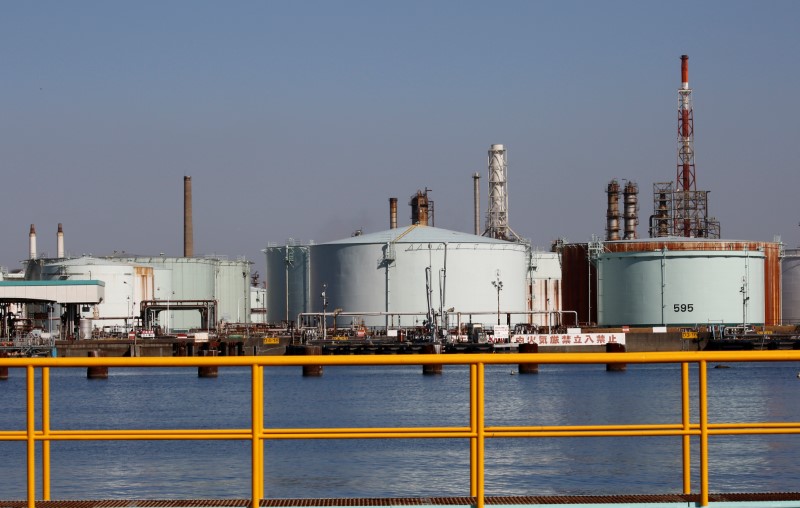(Bloomberg) -- Oil held above this week’s 21-year lows in Asia but remains in the emergency room amid a global supply glut that looks set to persist.
Futures in New York gained as much as 8.9%, extending a recovery from Monday’s historic plunge into negative territory. The market, already inundated with bearish signals, shrugged off a U.S. government report showing that the four-week average for American petroleum demand was at a record low last week while crude stockpiles were at a three-year high. News that U.S. President Donald Trump authorized the Navy to shoot down Iranian gunboats may also have supported prices.
Prices near or below zero are expected to persist until producers begin shutting in production at a level that will offset the unprecedented demand collapse caused by the coronavirus pandemic. ICE (NYSE:ICE) Futures Europe Ltd. confirmed on Tuesday night that it has taken steps to prepare for negative Brent pricing. Meanwhile oil traders are rewriting their risk models to accommodate potentially limitless declines.
Even OPEC+’s historic deal to slash production by 10 million barrels a day in May won’t be enough to offset the demand destruction from the virus in the short-term, which could be as high as 30 million barrels a day.
In the U.S., the world’s biggest oil producer, operators have started shutting wells and halting drilling -- steps that could cut output by 20% and leave thousands of workers unemployed. Some 1.75 million barrels a day is at immediate risk of shutting down while the number of new wells being brought online is forecast to plunge almost 90% by the end of the year, according to IHS Markit Ltd.
Markets are also having to grapple with a wave of volatility spurred by exchange-traded funds. Two such funds sold about 20% of the June WTI open interest on Tuesday, according to Bloomberg calculations. The U.S. Oil Fund said that Wednesday it may roll more of its WTI contracts forward due to extraordinary market conditions.
Asian retail investors were caught out by the WTI May contract’s collapse into negative territory on Monday ahead of its expiry. From Beijing to Seoul to Mumbai, the oil-tracking funds that offered cheap entry for the layperson suffered substantial losses.
©2020 Bloomberg L.P.
